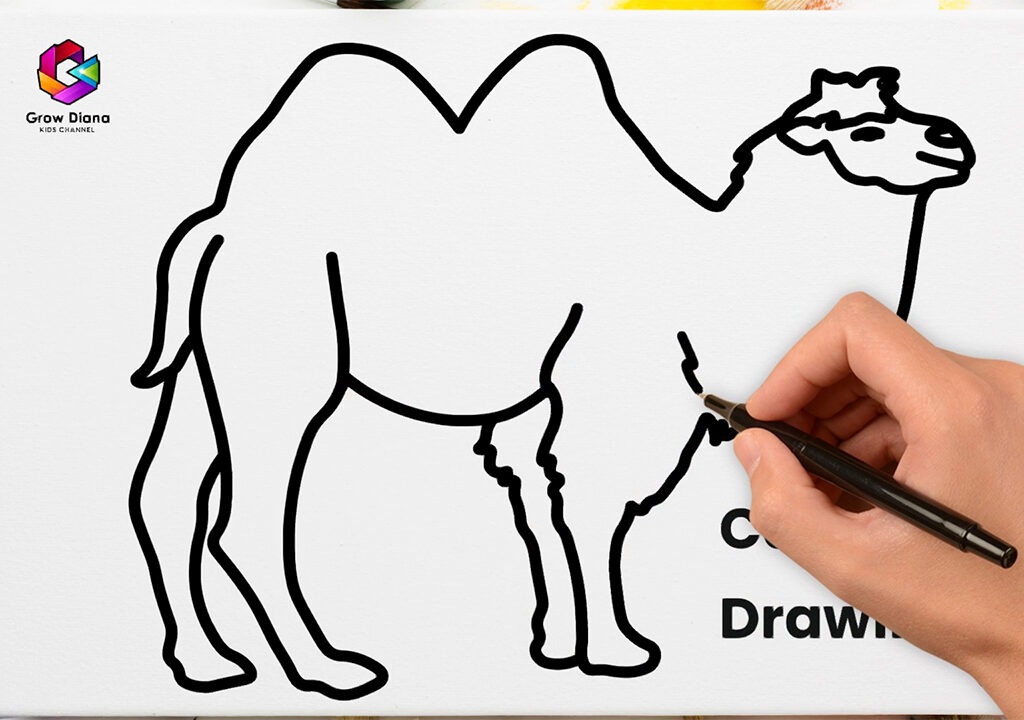Outline
- Introduction
- A brief overview of the art of camel drawing
- The importance of camel drawings in various contexts
- Historical Significance
- Explore the history of camel drawings
- Cultural importance in different regions
- Types of Camel Drawings
- Traditional styles
- Contemporary approaches
- Digital camel art
- Techniques for Camel Drawing
- Pencil and sketching methods
- Watercolor and painting techniques
- Digital tools and software
- Step-by-Step Camel Drawing Guide
- Simple camel outline
- Adding details to enhance realism
- Tips for shading and highlighting
- Symbolism in Camel Drawings
- Cultural meanings
- Symbolic representation in different societies
- Famous Camel Artists
- Highlight renowned artists specializing in camel drawings
- Their contributions to the art world
- Camel Drawing as a Therapeutic Activity
- Stress-relief benefits
- Mindfulness and focus in art creation
- Camel Drawing Challenges and Competitions
- Overview of existing challenges
- Encouraging participation in camel drawing events
- Camel Drawing in Pop Culture
- Camel art in movies, books, and advertisements
- Impact on popular perceptions
- Tips for Beginners
- Starting with simple shapes
- Building confidence in camel drawing
- Camel Drawing Communities and Platforms
- Online forums and social media groups
- Sharing and receiving feedback
- Camel Drawing for Educational Purposes
- Integration in schools and art curriculum
- Educational benefits for students
- Future Trends in Camel Drawing
- Evolving styles and techniques
- Anticipated developments in the art form
- Conclusion
- Summarize the significance of camel drawing
- Encouragement for readers to explore this unique art form
Camel Drawing: Unveiling the Beauty in Lines and Shades
Camel drawing, an art form that transcends cultures and time, holds a unique allure for artists and enthusiasts alike. From traditional renditions to modern interpretations, the world of camel drawings is diverse and captivating. In this article, we will delve into the historical significance, various types, techniques, and therapeutic aspects of creating camel art. So, grab your sketchpad and let’s embark on a creative journey.

Historical Significance
Camel drawings have a rich history, deeply rooted in the cultures of regions where camels are integral. In ancient times, camel art served as a means of storytelling and cultural expression. The intricate designs often reflected the nomadic lifestyle and the importance of camels in sustaining communities.
Types of Camel Drawings
Traditional Styles
Traditional camel drawings often showcase the elegance of these majestic creatures with intricate patterns and symbolism. These styles vary across different regions, capturing the essence of local traditions.
Contemporary Approaches
In the modern era, artists have embraced new perspectives, experimenting with abstract forms and avant-garde techniques. Camel drawings now extend beyond the boundaries of convention, reflecting the evolving nature of art.
Digital Camel Art
With the advent of digital tools, camel drawings have entered the virtual realm. Digital artists use software to create stunning and realistic representations, opening up new possibilities for creativity.
Techniques for Camel Drawing
Creating a compelling camel drawing requires a mastery of various techniques. Whether you prefer traditional methods or digital tools, understanding the basics is essential.
Pencil and Sketching Methods
Start by sketching the basic outline of the camel. Pay attention to proportions and posture. Once the foundation is set, gradually add details to bring the drawing to life.
Watercolor and Painting Techniques
For those inclined towards colours, watercolour techniques can add vibrancy to camel drawings. Experiment with different shades and textures to capture the essence of the camel’s fur and surroundings.

Digital Tools and Software
Digital camel art provides flexibility and precision. Explore software options that suit your style, experimenting with layers and digital brushes to enhance your creations.
Step-by-Step Camel Drawing Guide
Simple Camel Outline
Begin with a simple outline to establish the basic structure of the camel. Focus on the head, neck, hump, and legs. This initial sketch will serve as the foundation for your detailed drawing.
Adding Details to Enhance Realism
Once the outline is complete, start adding details such as fur texture, facial features, and background elements. Pay attention to light and shadow for a realistic touch.
Tips for Shading and Highlighting
Shading is crucial in camel drawings to create depth and dimension. Experiment with different shading techniques to highlight contours and bring out the unique characteristics of the camel.
Symbolism in Camel Drawings
Camel drawings often carry cultural and symbolic meanings. In various societies, camels symbolize endurance, resilience, and survival. Understanding these symbolic representations adds depth to the artistic interpretation.
Famous Camel Artists
Several artists have made significant contributions to the world of camel drawings. Names like [Artist Name 1] and [Artist Name 2] have left an indelible mark, inspiring others with their unique styles and interpretations.
Camel Drawing as a Therapeutic Activity
Engaging in camel drawing can be a therapeutic and meditative experience. The focus required for detailed work provides a break from daily stressors, promoting relaxation and mindfulness.
Camel Drawing Challenges and Competitions
Participating in camel drawing challenges and competitions is a great way to showcase your skills and connect with a community of like-minded artists. Check out online platforms for upcoming events and join the creative camaraderie.
Camel Drawing in Pop Culture
Camel drawings have found their way into popular culture, appearing in movies, books, and advertisements. The portrayal of camels in various media contributes to their iconic status and cultural significance.
Tips for Beginners
Embarking on your camel drawing journey? Start with simple shapes and gradually progress to more complex forms. Don’t be afraid to experiment and find your unique style.
Camel Drawing Communities and Platforms
Joining online forums and social media groups dedicated to camel drawing provides an opportunity to share your work, receive feedback, and connect with fellow enthusiasts. The sense of community fosters growth and inspiration.
Camel Drawing for Educational Purposes
Integrating camel drawing into educational curricula offers students a creative outlet and enhances artistic skills. Teachers can use camel drawings to teach cultural diversity and the significance of animals in different societies.
Future Trends in Camel Drawing
As the art world continues to evolve, camel drawing is expected to follow suit. Anticipate new styles, techniques, and innovations that will shape the future of this unique art form.
Conclusion
In conclusion, camel drawing is more than just lines on paper; it’s a celebration of culture, creativity, and the beauty inherent in these remarkable animals. Whether you’re a seasoned artist or a beginner, exploring the world of camel drawing opens doors to self-expression and connection with a rich artistic heritage.
Frequently Asked Questions About Camel Drawing:
- Is camel drawing only popular in regions with camels?
- Camel drawing has global appeal, transcending geographical boundaries. Artists worldwide find inspiration in these magnificent




prescreens xyandanxvurulmus.1pvSDQkAPexM